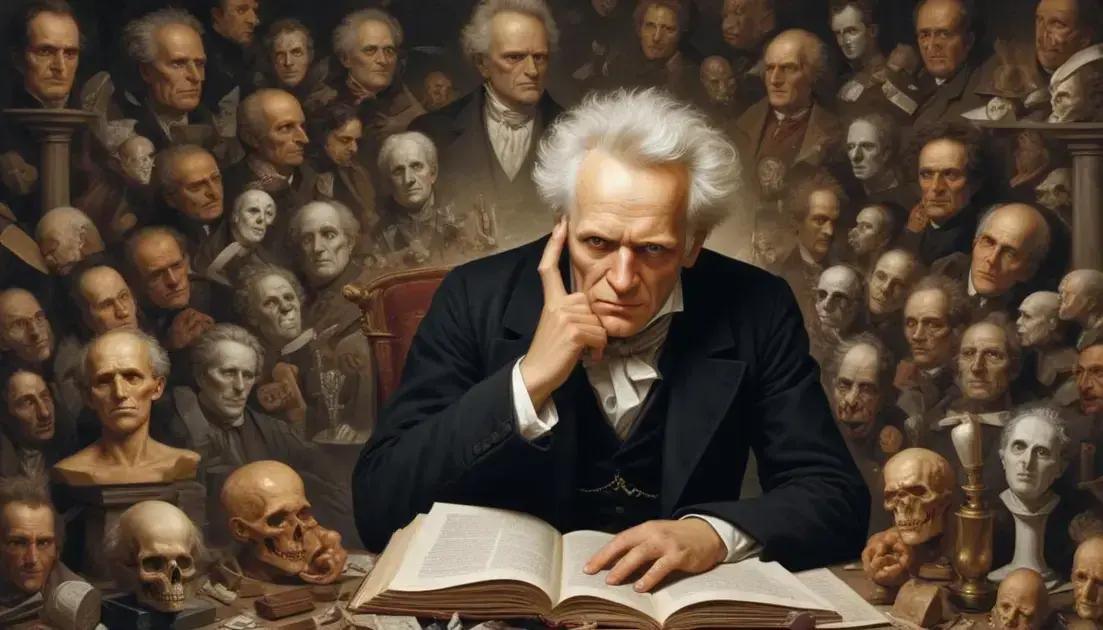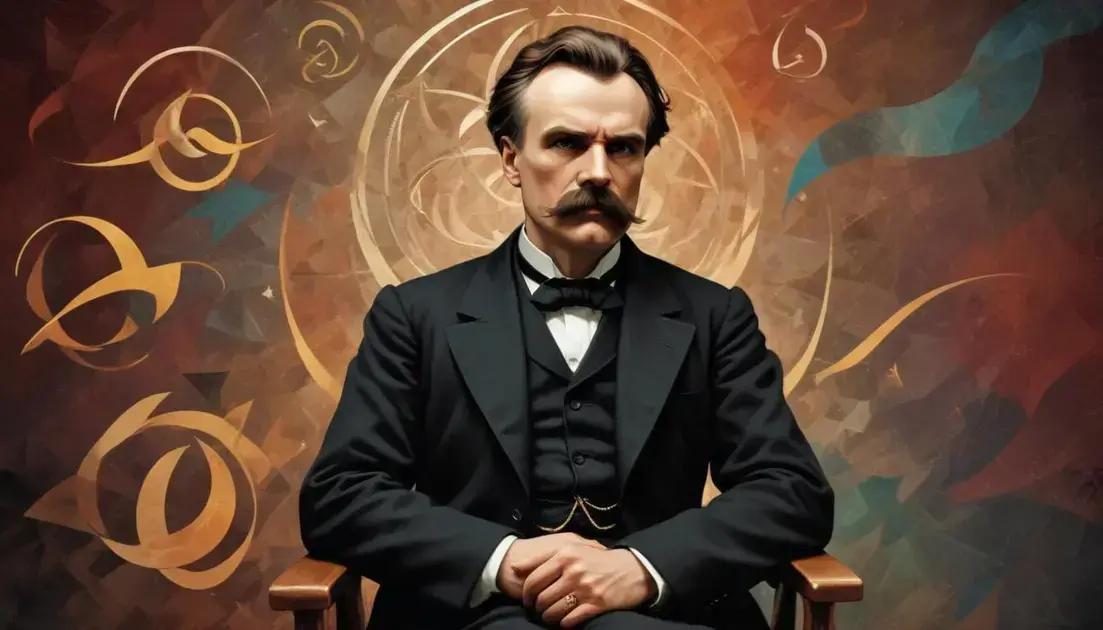
Kierkegaard: Faith, Anguish and Individuality
Kierkegaard’s philosophy greatly influences modern thought by emphasizing themes of faith, individuality, and existentialism. He challenged traditional notions of truth, proposing that personal experience shapes our understanding of faith. His ideas encourage individuals to embrace their unique journeys, highlighting the struggle between rationality and belief. In addition, his work laid the groundwork for existentialism, impacting notable philosophers like Sartre and Heidegger. Kierkegaard’s legacy inspires deeper reflection on personal meaning and the nature of existence in contemporary discussions.
Kierkegaard is often referred to as the father of nihilism, and his ideas have deeply influenced modern philosophy. Are you ready to explore his thoughts on faith and anguish? Let’s dive in!
The Life of Kierkegaard
Søren Kierkegaard was born in 1813 in Copenhagen, Denmark. He came from a wealthy family but had a troubled childhood. His father faced many hardships, which greatly influenced Kierkegaard’s view on life.
Kierkegaard studied theology and philosophy at the University of Copenhagen. He was deeply introspective and often wrote about his feelings and thoughts. He believed that individuals must find their path in life.
His life was full of struggles, especially in his relationships. One of his most famous loves, Regine Olsen, left a mark on his heart. He chose to end their engagement to focus on his writing and philosophy.
Throughout his life, Kierkegaard wrote many works. He explored themes of faith, angst, and individuality. His writings are still studied today, showing the complexity of human emotions.
Kierkegaard passed away in 1855 after suffering from health issues. His legacy remains strong, influencing countless thinkers and artists.
Today, Kierkegaard is considered the father of existentialism. His ideas about personal choice and the struggle for authenticity resonate with many people, even now.
Key Concepts in Existentialism
Existentialism is a philosophy that focuses on individual freedom and choice. It suggests that people create their own meaning in life. This idea is central to the work of many thinkers, including Kierkegaard.
One key concept is existential dread. This feeling arises when one realizes the freedom of choice can be overwhelming. It leads to questions about purpose and the nature of existence.
Another important idea is authenticity. Being authentic means living true to oneself rather than conforming to social expectations. For Kierkegaard, this was about embracing one’s unique path in life.
Additionally, faith plays a significant role in existential thought. Kierkegaard believed that true faith involves a personal leap beyond rationality. This leap is necessary for deep spiritual connection.
Lastly, absurdity is a concept that highlights the gap between human desire for meaning and a silent universe. This tension is something that many existentialists, including Kierkegaard, explored deeply.
Overall, these concepts shape how we understand ourselves and our place in the world. They invite us to confront our choices and the significance of our actions.
Faith and Individuality
Faith and individuality are key themes in Kierkegaard’s philosophy. He believed that each person’s relationship with faith is unique. This means that no two people experience faith the same way.
Kierkegaard argued that true faith requires a personal commitment. It isn’t just about following rules or traditions. It’s about connecting deeply with one’s own beliefs.
Individuality is closely linked to this idea. Kierkegaard stressed that each person must find their own path. He celebrated the choices people make, even when they are difficult.
He viewed faith as a leap. This leap is when someone embraces uncertainty and chooses to believe. It’s not always easy, and it often brings doubt.
Kierkegaard also spoke about the importance of being authentic. Living an authentic life means staying true to oneself. This authenticity empowers individuals to pursue their own faith journeys.
In summary, Kierkegaard teaches us that embracing both faith and individuality can lead to a richer life. Each person’s experience is valuable and uniquely their own.
Kierkegaard’s Influence on Modern Philosophy
Kierkegaard’s ideas have shaped modern philosophy in many ways. He is often called the father of existentialism. This philosophy focuses on individual experience and personal choice.
His emphasis on subjectivity changed how people think about truth. Kierkegaard believed that truth is often personal and can vary from person to person. This idea challenges the idea of universal truths.
Many modern philosophers, like Jean-Paul Sartre and Martin Heidegger, drew inspiration from Kierkegaard. They embraced notions of freedom and the need for personal responsibility.
Kierkegaard also highlighted the struggle between faith and reason. This tension raised important questions that many philosophers explore today. The balance between believing and understanding remains a crucial topic.
His use of irony and paradox also influenced literature and the arts. Writers and artists have adopted these techniques to express complex emotions and thoughts.
In summary, Kierkegaard’s impact is vast. His thoughts encourage us to think deeply about ourselves and our choices.
Conclusion
In conclusion, Kierkegaard’s thoughts on faith, individuality, and existentialism continue to influence us today. His ideas challenge us to explore our personal beliefs and choices. They remind us that every person’s journey is unique and significant.
Understanding Kierkegaard helps us grasp the importance of being authentic. It encourages us to embrace our emotions and confront life’s uncertainties. By reflecting on his insights, we can better understand ourselves and our place in the world.
Overall, Kierkegaard’s impact on modern philosophy invites us to think deeply and live meaningfully. His legacy inspires us to explore faith and individuality in our own lives.


